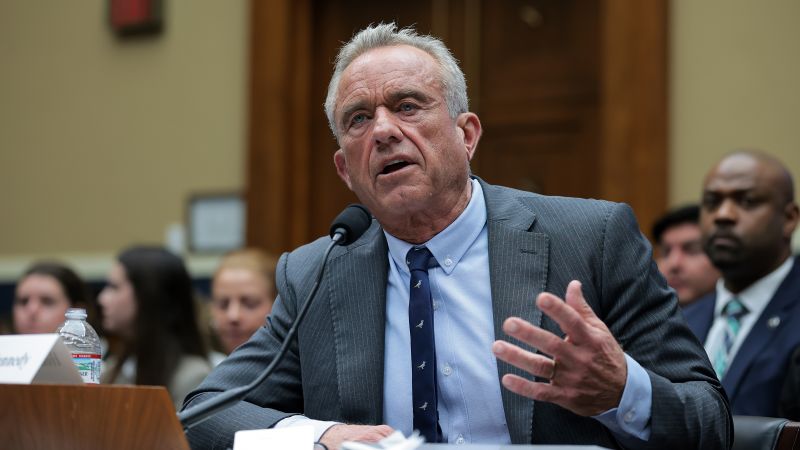The recent decision by the U.S. Department of Health and Human Services (HHS) to cancel a scheduled meeting of the U.S. Preventive Services Task Force (USPSTF) has raised serious concerns regarding the future of this nonpolitical advisory group. This cancellation leads to significant uncertainty about how health advisory decisions will be influenced in the future, particularly in light of the ongoing changes within the HHS under Secretary Robert F. Kennedy Jr. Known for his controversial views, Kennedy’s leadership has already shown signs of altering the landscape of health-related advisory bodies.
An HHS spokesperson confirmed to CNN that the anticipated meeting, which was set for Thursday, would not proceed as planned. This notification was communicated to the public late on a Monday afternoon and the decisive action came from HHS Secretary Kennedy’s office. A source familiar with the situation, who chose to remain anonymous, indicated that the postponement was made with consideration of various factors, though the specifics remain undisclosed to the public. This abrupt change in plans adds to the growing speculation regarding Kennedy’s motivations and objectives concerning the task force’s operations.
The USPSTF plays a crucial role within the healthcare system, providing vital recommendations on a spectrum of preventive services ranging from cancer screenings to screenings for sexually transmitted infections (STIs) and other health services. The task force was established in 1984 and has since been known for operating transparently and without political bias. HHS officials emphasized that, despite the postponement of the meeting, they remain committed to collaborating with the task force to enhance the health and well-being of the American public.
The cancellation of the meeting comes during a pivotal moment, as Kennedy actively seeks to reshape government health agencies. He has labeled the influence of the healthcare industry on policy as excessive and is determined to revamp these organizations to reflect a more independent stance. Last month, Kennedy controversially dismissed a 17-member vaccine advisory committee under the CDC. Shortly after, he appointed eight new committee members, several of whom have previously expressed skepticism regarding vaccine safety, raising alarms about the potential biases this shift could introduce into public health recommendations.
Within circles connected to the USPSTF, there are rising concerns regarding the future of the group itself. A source close to the task force indicated a pervasive worry that it might face a fate similar to the ACIP (Advisory Committee on Immunization Practices), which has recently undergone significant alterations under Kennedy’s administration. The perspective here reflects a broader apprehension about government overreach in health advisory roles, sparking internal conflicts about the science-based practices previously upheld by the task force.
In an important judicial affirmation of the task force’s structure, the U.S. Supreme Court upheld the constitutionality of the USPSTF in a recent ruling. This decision affirmed the task force’s authority to make recommendations on preventive services that insurers are obligated to cover without any out-of-pocket cost to patients. Both past administrations, including Biden and Trump, defended the task force’s formation, arguing that the HHS secretary has the power to appoint and remove its members, which solidifies the structure Kennedy now oversees.
Despite support for the ruling within consumer advocate circles, there is apprehension regarding the increased power now held by Kennedy over preventive care recommendations. Law experts caution that while the task force’s recommendations are legally binding, they could be undermined by political motives if not carefully regulated. This situation has created a complex environment where recommendations – once regarded as professional judgments based on empirical data – may now be swayed by the biases of political appointees.
The meeting that was canceled was supposed to provide an agenda focused on critical health matters, including “healthy diet,” “physical activity,” and “weight loss to prevent cardiovascular disease in adults.” Such discussions are vital in shaping public health policy and ensuring that evidence-based strategies are prioritized in health promotion efforts. Historically, the USPSTF holds three in-person meetings annually, coupled with virtual meetings held regularly, reinforcing the importance of continuous dialogue in public health strategy. The unexpected postponement not only disrupts this cycle but also leaves an air of uncertainty regarding the steadfastness of evidence-based health policies going forward.












